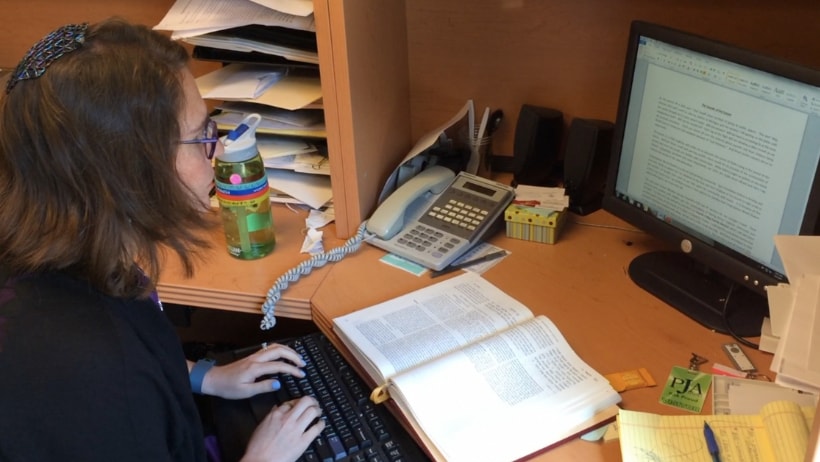One of my favorite parts of the week is writing these little d’vrei Torah for you. Good thing I became a rabbi, right? The act of sitting with an open chumash, reading the parshah, and thinking about how these ancient words can be relevant and thought-provoking for today excites me. Each week for the past six years I have challenged myself to write on the Torah portion. This is more than a writing exercise; it is a way for me to find myself in the ancient words of our people. This is an opportunity to ground myself in the comfort that my struggles are not new, but were experienced and overcome by our forebears. Each week, I feel as if I write my own little piece of the Torah.

This week we read from parshat Vayelech, which speaks to the difficulty leaders have in transferring over their power. We read of the final days of Moshe and the gift of life he had to live to 120 years. The Israelites witness their approach to the land and the transfer of “power” to Joshua. Finally, Moshe writes the words of the Torah and passes down the commandment to the Kohanim to read the Torah. Moshe’s final moments with the Israelites are near, and he prepares by coming up with a transfer of legacy, tradition, and history.
Chapter 31, verse 19 reads, “Therefore, write down this poem and teach it to the people of Israel; put it in their mouths, in order that this poem may be My witness against the people of Israel.” The imperative to write it down isn’t just for Moshe, it’s for all of us. This is where we receive the mitzvah that each Jew is to write a personal copy of the Torah. You may have seen synagogues work towards acquiring a new Torah and asking individuals and families to sponsor one letter, word, verse, or chapter of the Torah, such that their financial contribution fulfills this commandment.
Personally, I read this section of the text a little differently. Perhaps we should write for ourselves a literal Torah, in other words the exact replication of the text, or perhaps the commandment is to write our own commentary. We use the Torah as the basis for our laws and traditions, but it’s in the subsequent texts where we discover how to apply these lessons to our lives. Maybe what we are commanded to do is take the words of our history and write our own narrative alongside it, as others have done before us. Think about it this way: at this rate I have written my own Torah every year since 2010!
Write it down, the Torah commands. Read the text and relate to it, interpret it, own it and share it. As we hope to be written and sealed for the new year, may we also endeavor to write for ourselves, for our family, and for the future.



